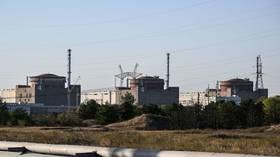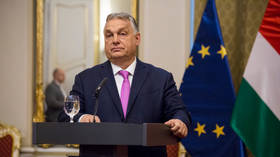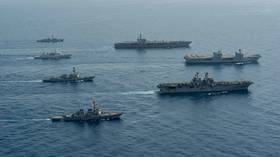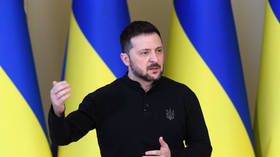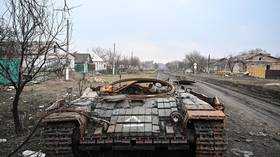Every tenth prisoner in UK is a war veteran
Thousands of British troops coming back from the wars in Iraq and Afghanistan suffer from post-traumatic stress and fail to get back to normal life. They blame their government for abandoning them.
Trained to kill, and often recovering from the trauma of war, reintegrating into society is a struggle that is frequently too overwhelming. Almost one tenth of the UK prison population is comprised of veterans of armed conflicts. And 20,000 – or twice the number of troops currently serving in Afghanistan – are either in jail or on parole.
"What we have is an extraordinary number of soldiers in the justice system: around about 8-9% of the total which, if we take out the unemployed, makes them the largest professional group," says Harry Fletcher, Assistant General Secretary at the National Association of Probation Officers in London.
In more than half of the cases, veterans were suffering from persistent flashbacks, nightmares, and paranoia. Neil – not his real name – was recently diagnosed with Post Traumatic Stress Disorder. He fought in the Falklands in 1982. Some years after leaving, he spent 2 years in prison for a sexual offence. Neil says often soldiers are never wound down for re-entry into civilian life.
“You’re built up and built up and built up but you’re never actually switched off again at the end of it. It was like that on the way down to the Falklands. That all we wanted to do was get off the boat and kill somebody. But when we came back, we still had that – that’s still how we felt,” says Falklands veteran.
The Ministry of Defence says it “considers all mental disorders seriously, and offers assessment and treatment to individuals who might be concerned about their mental health.” But some say in the long run, it is the duty of a country to look after its veterans.
"I think the state has got to look to its conscience. If these men are good enough to risk their lives for the country then they must be good enough to get help and support on release no matter what it costs. And in the long term if we end up with not 20,000 men in the justice system but 10,000 then the state will save money anyway," Harry Fletcher says.
Neil had counseling for 7 months after leaving prison. He now feels he can cope with life again despite the trauma etched into his memory. But as for the time he served in the military, he has no regrets.
"It was worth it. There’s no way I can blame the service, because you volunteered, you know that you’d have to go and fight at some stage, and that was it. Once you’ve done that, it’s not the Marines’ problem, it’s the government’s problem. ‘We’ve pulled you out of the frying pan, help us along a bit after we get out.’ But they don’t…" Neil says.
Neil applied for a war pension, on the grounds of PTSD and other injuries received in the Marines. He was turned down because he couldn’t prove his symptoms stemmed from his time in the Falklands.
There’s currently no government agency that offers stress counseling when servicemen and women return from active duty. And with British troops currently engaged in yet another large scale conflict overseas, continuing to deny a real problem with veterans in the justice system could mean the government is sitting on a time bomb.





